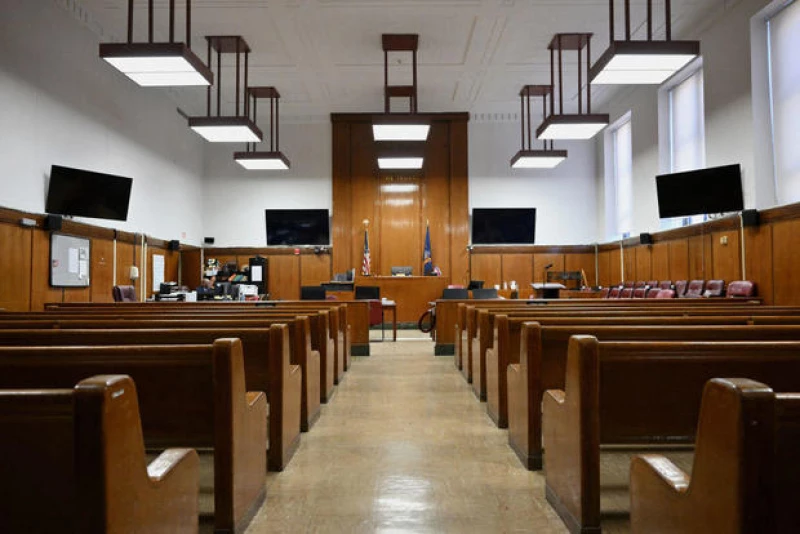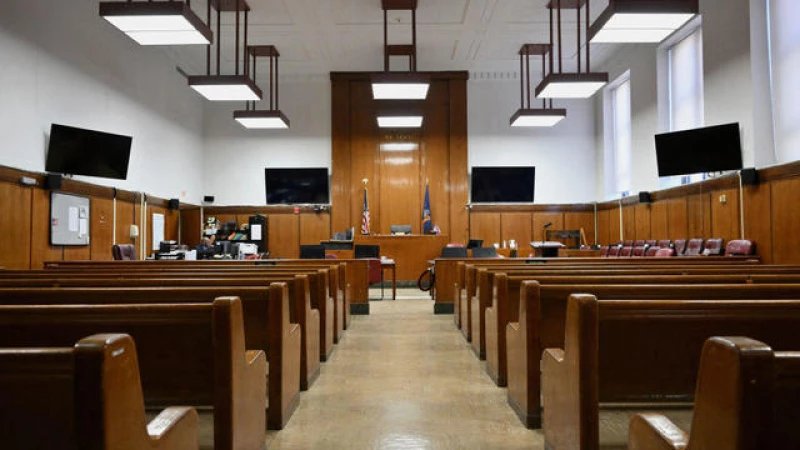News has surfaced that several hundred Manhattan residents have received notices to appear at the borough's criminal court on April 15. Little do they know, they are being considered as potential jurors in what could be one of the most high-profile criminal trials in U.S. history.
Both former President Donald Trump's legal team and Manhattan prosecutors are gearing up to assess over 500 potential jurors as the trial commences, as per insider sources. This extensive pool of candidates underlines the sheer significance of the case at hand.
These individuals will undergo scrutiny based on their responses to detailed questionnaires, followed by individual interviews in court. The objective is to reach a consensus on the final selection, a meticulous process aimed at identifying and eliminating potential jurors who may be unable to set aside personal biases. This process could span several days, if not weeks.
Ultimately, the initial group will be narrowed down to 12 jurors and four alternates. Their responsibility will be to determine whether the former president unlawfully altered business records subsequent to his lawyer paying "hush money" to an adult film star shortly before the 2016 election. Trump is facing 34 felony charges and has entered a plea of not guilty.
Former Manhattan prosecutor Duncan Levin highlighted the exceptional nature of this trial, even in a city accustomed to high-profile celebrity cases.
"The Most Famous Defendant Who Has Ever Lived"
"This particular person may be the most famous defendant who has ever lived," said Levin, now a private attorney who previously represented the daughter-in-law of Allen Weisselberg, the Trump Organization's longtime chief financial officer.
The Jury Selection Process
Levin and others said the goal won't be to eliminate anyone who is a Democrat or Republican, but instead to find a group of people who haven't already made up their mind about this case, and who can be trusted to render a verdict based on the evidence.
Trump's attorneys have argued that Manhattan's status as a Democratic stronghold makes it impossible for him to get a fair trial and have suggested a change of venue. But the island is no stranger to finding jurors in cases involving famous, unpopular defendants. It took nearly two weeks to seat jurors for Hollywood mogul Harvey Weinstein's rape and sexual assault trial in 2020.
"At least with Trump, there may be like 20% of the people who actually voted for him. With Harvey Weinstein, 100% of the people were against him," said Arthur Aidala, who represented Weinstein in the case.
The Imperfect Voir Dire Process
The jury selection process, known as voir dire, "is not a perfect vehicle to uncover juror biases," according to Cornell Law School professor Valerie Hans, one of the nation's leading scholars on the jury system.
She expressed concerns about the extensive media coverage and public attention surrounding Trump's case, suggesting it could influence jury selection.
"Research shows that such publicity can bias jurors by shaping their interpretation of evidence and increasing the impact of statements consistent with the pretrial coverage," stated Hans.
Trump's legal team has raised issues regarding the impact of media coverage on potential jurors, although prosecutors argue that Trump himself has actively sought out this attention.
"In typical cases, pretrial publicity tends to bias against the defendant, but in the Trump 'hush money' case, his public narrative presents it as a political witch hunt," explained Hans.
Hans believes that this unique situation may result in a less pro-prosecution effect due to the overwhelming media attention.
During a hearing on Feb. 15, a prosecutor mentioned that potential jurors will face specific questions related to Trump's post-election claims.
Trump's Legal Team Objects to Question About Election Theft Belief
During the ongoing legal battle, Trump's lawyers have raised objections to a specific question posed: "Do you believe the 2020 election was stolen?"
Joshua Steinglass, representing the Manhattan District Attorney's Office, defended the question by stating that it aims to assess an individual's willingness to base their beliefs on facts rather than blindly following assertions made by Trump.
With the intense media coverage surrounding the case, the usual challenge of selecting impartial jurors has become even more complex. According to Bennett Gershman, a professor at Pace University Law School, the focus has shifted from identifying fake excuses to detecting potential "stealth jurors" who may harbor strong biases but are reluctant to disclose them.
Gershman explained, "There may be individuals eager to participate in this historic moment in American history by serving on the jury. While they may have preconceived notions, they might choose not to reveal them openly."
As a result, legal teams are turning to specialists to scrutinize the online presence of prospective jurors in real-time during the selection process, recognizing the critical role this plays in ensuring a fair trial.
The Trump gag order

Researching potential jurors is a standard practice in high-profile cases, but Trump is at risk of being barred from learning their identities. On March 26, Judge Juan Merchan issued a gag order restricting what Trump and others could say about potential witnesses, court personnel and district attorney staff, as well as their families. In the days after the order, Trump repeatedly lashed out at Merchan in social media posts that included information about the judge's adult daughter, who works for a consulting firm whose clients include Democratic candidates and progressive groups.
On Monday, Merchan concluded that the comments about his daughter would "undoubtedly interfere with the fair administration of justice" and represent "a direct attack on the Rule of Law itself."
Merchan extended the gag order to cover his own family, citing concerns about potential jurors feeling threatened not just for themselves but also for their loved ones.
In a bold move, Merchan's order also included a direct warning to Trump: Any possibility of him accessing juror names would be revoked if he continued with disruptive behavior.
The practice of using anonymous juries is typically seen in cases involving organized crime and drug trafficking, experts noted. However, in two recent federal civil cases involving Trump, the judge opted for anonymous jurors, even advising them to use aliases among themselves. In both cases, the juries swiftly found Trump guilty of sexual abuse, defamation, and related allegations.
One specific element of Merchan's warning stood out as particularly impactful, as highlighted by Levin: The jurors would remain anonymous solely to Trump.
"This aspect of the sanction order holds significant weight, especially considering the asymmetry in knowledge between the two parties," Levin remarked.







